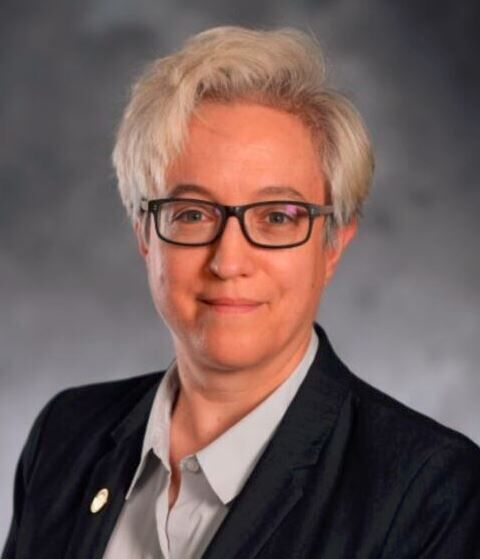Ontario City Council letter outlines state drug law’s effect on community
Published 1:00 pm Monday, October 10, 2022

- Kotek
LA GRANDE — A city council in Malheur County wants state officials and gubernatorial candidates for governor to know its dissatisfaction with a law that decriminalized certain illegal narcotics.
Trending
The Ontario City Council sent a letter Tuesday, Oct. 4, to Oregon media outlets, including The Observer, and Gov. Kate Brown, along with gubernatorial candidates Christine Drazan, Tina Kotek and Betsy Johnson stating that Measure 110, passed by voters in 2020, has “disastrously impacted our community.”
“As a border town with the State of Idaho, Ontario has seen a significant increase in crime and homelessness in the past few years,” the council wrote in the letter.
The letter states that Ontario Police Chief Michael Iwai — during a presentation to the Ontario City Council — noted the negative impact the decriminalization of hard drugs has had on the Malheur County community.
Trending
“Ontario is attracting individuals from outside of our community specifically due to this decriminalization,” the letter stated.
The letter acknowledges Measure 110 provides for some additional funding to assist with addiction treatment.
“The City of Ontario would rather reverse the decriminalization of drugs and return the addiction treatment funds (which according to Police Chief Iwai will result in a grand total of seven new beds in all of Malheur County),” the council said in the letter. “Our local police feel overwhelmed by the increase in crime and homelessness resulting in a request of more police resources — not the decrease in police resources as envisioned with the passage of BM 110.”
Ballot Measure 110, which Oregon voters overwhelmingly passed, 58%-42%, failed in Malheur County by 61% of the vote. The law diminishes penalties for drug possession and allocates funding for drug addiction treatment.
Under the measure, for example, an individual found with less than 1 gram of heroin would face a maximum fine of $100 instead of a misdemeanor punishable by up to a year in jail.
“The community of Ontario believes that the experiment has been a catastrophic failure,” the council wrote. “BM 110 is negatively impacting our citizens’ quality of life and we ask that you do all you can in your power to overturn this misinformed policy in any way you can, including sending this back to the voters for reversal or allowing Ontario to be carved out from its implementation.”
Ontario sits on the border with Idaho, which, according to the council is part of the issue.
“Ontario is a proud and compassionate community and we do not want a handout from the state,” the council said in the letter. “However, as a rural border community of 11,080 we can no longer afford to bear the burden of being the drug use destination of our neighboring state and expect to continue to maintain the quality of life our citizens expect and deserve.”
La Grande City Council responds
La Grande Mayor Steve Clements said he understands the situation the Malheur County community is in.
“We have a little bit different situation than Ontario,” he said. “I mean, we’re not right next door to Idaho, but we still have issues here, and I think they’re general issues in some regard to what I’ve heard happening with other communities as a result of 110.”
Clements said the La Grande City Council will draft a similar letter addressing issues that have arisen in the city as a result of Measure 110. The mayor said the idea is to send the letter to media and state leadership.
“The Ontario (letter) prompted the idea. (La Grande Police Chief Gary Bell) and I have talked about (the impact of the new law) a little bit over the last few months through my involvement with the Union County Safe Communities Coalition, and so much of what that coalition does, and a lot of what Chief Bell and his crew do, is directly affected by 110,” Clements said. “How do you treat addiction when possession is decriminalized?”
During the Wednesday, Oct. 5, meeting of the La Grande City Council, Bell addressed the impact Measure 110 has had on the community.
“I started serving our community as a police officer in the early 1990s. When I first started working here, we had not even seen methamphetamine on the streets of La Grande,” he said. “The prevalence of drugs in our community is greater today than throughout my nearly 30-year career here as a police officer.”
Bell told the council about a recent incident where a young woman in the throes of addiction and suffering with behavioral health issues attempted to light her hair on fire in front of a business on Adams Avenue.
“We need a fix. We need some changes to ballot Measure 110 as we know it because the people of our state, the people of our community are being negatively impacted. I’m concerned that we may be losing an entire generation of people to addiction,” he said.
Oregon’s gubernatorial candidates say Measure 110 isn’t working
For their part, gubernatorial candidates Drazan, the Republican nominee, Kotek, the Democratic nominee, and Johnson, unaffiliated, all agree Measure 110 hasn’t worked as intended.
During a gubernatorial debate Oct. 4 in Portland, Drazan called the measure a “failure,” citing the increased rate of drug overdose deaths in Oregon. Overdose deaths have been rising each month since March 2019, according to CDC data, long before Measure 110 was approved by Oregon voters and implemented.
“We have got to repeal Measure 110,” Drazan said during the debate, which was broadcast on KATU. “As I have been on the campaign trail, I have heard from Oregonians across our state who have real concerns about the impacts of Measure 110 in their families and in their communities and they absolutely are calling for leadership on this issue.”
Drazan said she would call on the Legislature “to refer a measure back out to voters, which removes the portion of the measure that decriminalized possession of hard drugs and instead commit to continue to fund supportive services and give people the opportunity to get into treatment so that they can enter into a lifetime of recovery.”
Johnson also said she would re-refer Measure 110 to the Legislature to ask them to send it back to voters.
“I think it was sold to voters in a very disingenuous way, and I think we need an honest conversation about the nexus between lethal drugs, homelessness, mental health deterioration, crime and violence. It’s all inextricably tied,” she said.
While Kotek agreed with her opponents that the rollout of Measure 110 has been botched, she told Oregon Public Broadcasting she doesn’t agree the measure should be repealed.
“Oregonians overwhelmingly voted to pass Measure 110 because they know we need a health-based approach that provides treatment to people dealing with addiction,” she said. “When someone is ready to go into treatment and recovery, we need to ensure there is treatment ready and waiting for them.”









